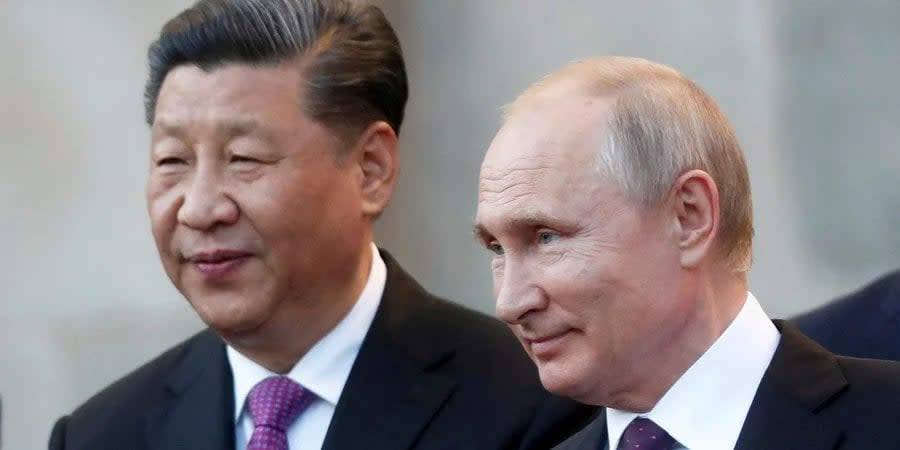Emerging Chinese threat to NATO and the EU

China's imperative at the global level is to become a technological and economic superpower that other countries depend on.
Read also: China ready to promote political settlement of “crisis” in Ukraine, Chinese official says
China's economic strategy aims to make it less dependent on other countries while making international production chains more dependent on China.
At the Vilnius summit, NATO adopted documents emphasizing the need to contain China. China's size and ambitions have allowed it to successfully penetrate all sectors of the economy of many European countries. China's imperative at the global level is to become a technological and economic superpower on which other countries depend. Beijing's imperative at the national level is to continue the dominance and control of the Communist Party of China.
If European governments are determined to confront the threat from China, they must be convinced that economic interests will not outweigh security concerns. European officials have emphasized that there is an urgent need for European companies to reduce the risks associated with China without seeking to separate economies. "For Germany, China remains a partner, a competitor, a systemic rival. But the aspect of systemic rivalry has become more and more prominent in recent years," said German Foreign Minister Annalena Burbock. This also applies to the whole of Europe.
Read also: Dutch judge dismissed for attempting to influence MH17 investigation
China has restricted exports of two essential metals for chip production, which was a warning to Europe and the United States in the technological war for high-tech chips. In turn, China's containment is manifested in practical steps to control the supply of semiconductors. The Dutch government has joined Japan and the United States in deploying new measures to control the export of semiconductors and technologies that can be used to create new military systems.
China is pursuing its interests much more assertively
and trying to change the existing rules-based international order in various ways. This affects European and global security. Economists emphasize that competition between states is good but must be based on fair rules.
China is the largest trading partner of many countries, including Germany. According to the Federal Statistical Office of Germany, in 2022, Germany's imports from China amounted to 191.1 billion euros. Meanwhile, German exports to China amounted to 106.8 billion euros.
China has the largest state intelligence apparatus in the world, which eclipses the intelligence agencies of most European countries and creates challenges for them. Analysts note that the intelligence threat from China is exacerbated by the participation of the "whole state" using state and non-state structures for intelligence, including economic intelligence.
Read also:
Russia blocking UN from Kakhovka, China won’t arm Russia, Ze remains popular
China reacts to NATO criticism, warns of ‘resolute response’
China ‘likely’ supplying Russia with military technology – US intel
Meanwhile, Samsung and Apple are moving their business from China to other South Asian countries such as Vietnam and India. Today, Samsung produces half of its smartphones in Vietnam, paying a 10% income tax against the standard 25% in China. Apple also has facilities in Vietnam, making Apple watches and iPads there. Up to 30% of all Samsung smartphones are produced in India. This country is becoming a global smartphone manufacturing market, where the Koreans opened the largest smartphone factory near New Delhi in 2022.
Russia's invasion of Ukraine has changed many things. Beijing's close ties to Moscow have also damaged its image in the Eastern European region, exacerbating a situation already worsened by the Covid-19 pandemic, when China's reputation in Europe has taken a significant hit. In Eastern Europe, Beijing's support for Moscow's false propaganda against NATO and the United States is not accepted at all.
Read also: Ukrainian diplomat says Minsk-Moscow-Tehran-Beijing alliance is threat to global security
Beijing is pushing proposals that work well in non-EU Balkan countries but are incompatible with Brussels' labor and lending laws. While China's dependence on Europe has been steadily decreasing, the reliance of individual European countries on China has increased significantly in recent years. This is the basis for NATO and the EU's strategy to curb China's economic and political expansion.
We’re bringing the voice of Ukraine to the world. Support us with a one-time donation, or become a Patron!
Read the original article on The New Voice of Ukraine

